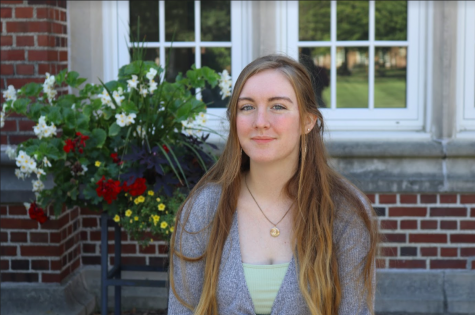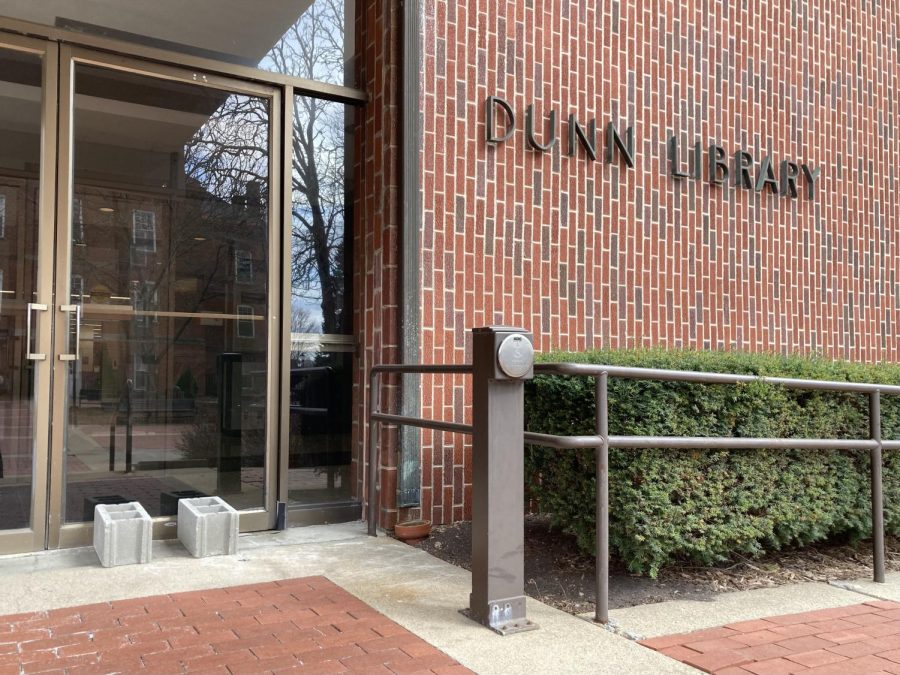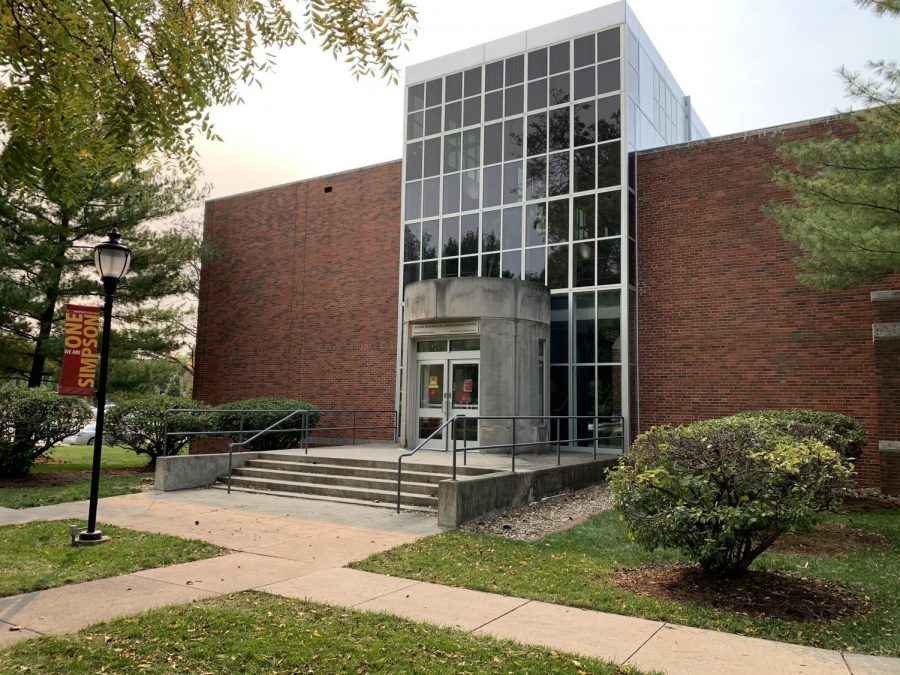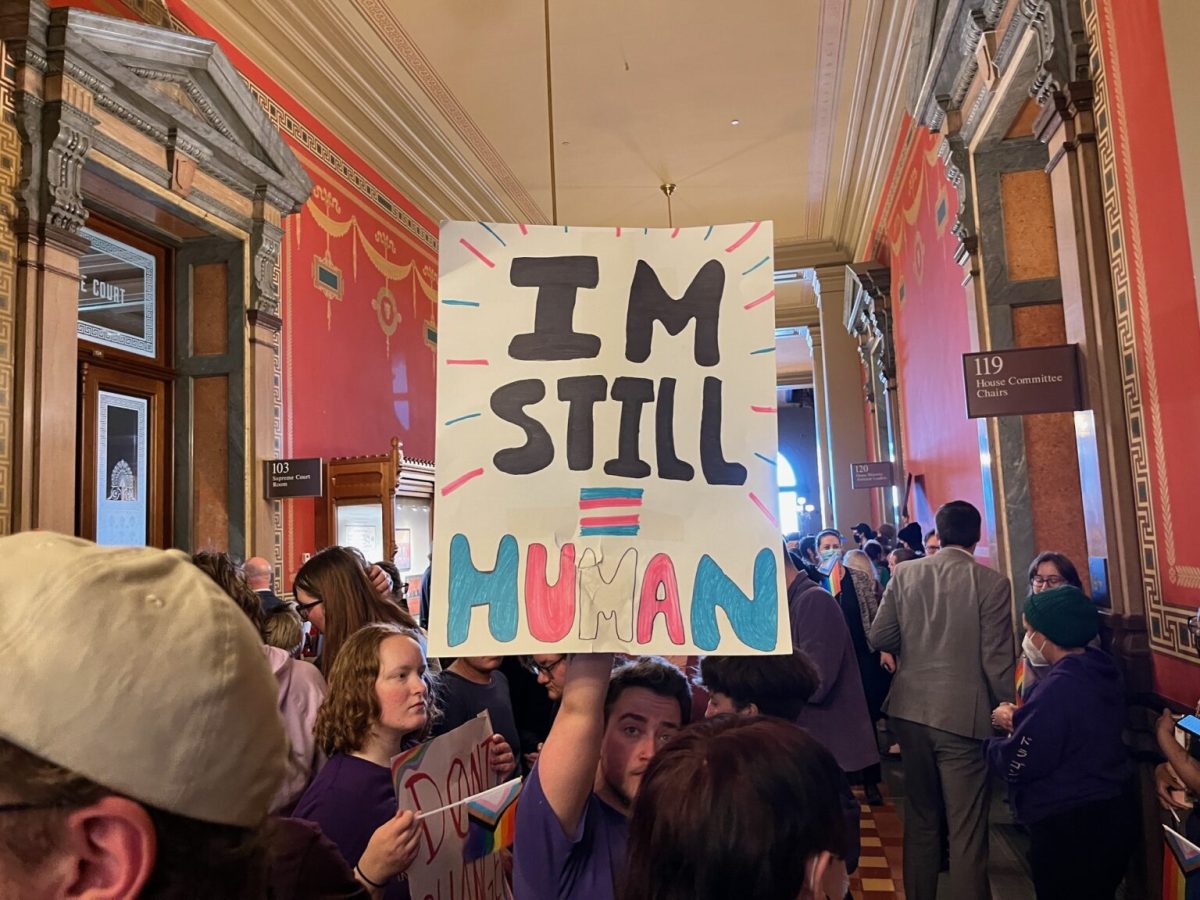Pizza and Policy: Focusing on the Russia-Ukraine war
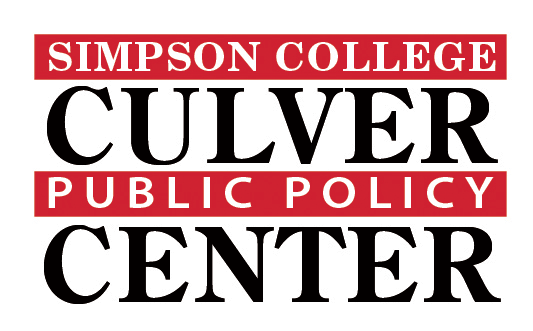
The Culver Center hosted its annual Pizza and Policy event on March 3.
March 3, 2022
*Editor’s note: This article is part of ongoing student coverage of the conflict between Russia and Ukraine. Readers are encouraged to read Part 1 and Part 2 for a more in-depth understanding of the current conflict. Additionally, due to safety concerns, one speaker’s name and information have been omitted.
Over 50 students gathered in McNeill to hear professors speak about the long-standing conflict between Russia and Ukraine for the Culver Center’s annual ‘Pizza and Policy’ event on March 3.
The event was held in a teach-in format reminiscent of those in the 1960s during the Vietnam War. Seth Andersen, Executive Director of the Culver Center, led the event and gave students a faculty perspective into what’s become a major global conflict over the past few weeks.
Professor of History, Judy Walden, gave a brief rundown on the history between Ukraine and Russia and how it led to the war that emerged in recent weeks. Walden warned about the dangers of attempting to simplify history. She explained that audiences should be skeptical of anyone who claims that history “tells us” something.
“History is complicated, a history that goes over one-thousand years is one-thousand times more complicated,” Walden said.
Professor of Management, Mark Green, studied Russian Linguistics at Cornell University. He emphasized the importance of understanding toxic masculinity’s effects on governmental officials. In Russian culture, the concept of the strong man or, сильный человек, is a highly revered individual with an immense amount of prowess and power, which was crucial to Joseph Stalin’s image and could be a driving force behind President of Russia Vladimir Putin.
Eduardo Magalhães III, Professor of Political Science at Simpson, focused on the importance of understanding Russian politics. For example, many Americans still view Russia as a communist or socialist nation, which is far from the truth. Russia has been a capitalist nation since the fall of the Soviet Union in 1991.
“Clearly when you look at how this is all played out it doesn’t make any sense, right?” Magalhães said. “There’s no logic to this, but I think that’s what I want to sort of explain to you here is the logic that’s driving Vladimir Putin. And so the historical stuff, and I think Dr. Walden is right, this is about a distorted version of the history and weaponized version of the history to justify something that he wants to do to distract the Russian people from other things. He’s not really very good at managing the economy, in terms of eliminating corruption in terms of any number of other benefits.”
Brian Steffen, Chair of the Multimedia Communications Department and Professor of Multimedia Communications, explained the importance of understanding disinformation and the terms associated with it.
Misinformation is a term often applied to any false information spread, but that itself isn’t entirely accurate. Misinformation is the accidental spread of false information. This is not done maliciously, but more so accidentally. On the other hand, disinformation is the deliberate spread of false information—the spreader knows that what they’re saying is false, and it’s often done to gain political, social or economic power.
Steffen discussed the differences between American journalists and Russian journalists. It’s important to note that Russian journalists often suffer when reporting factual information about the Russian government. The Human Rights Watch reported that Russian journalists who publish information critiquing the Russian government have been added to a special registry of “foreign agency media” and some have had their homes raided.
“Fortunately, the difference was we had a history of democracy and democratic institutions,” Steffen said. “That said, no, Russia does not have that. One of the things that you must have in order to have a functioning democracy is trust in information. That’s why we have the First Amendment. It’s why we traditionally have put trust in those who tell us what is going on in the world.”
Steffen explained the importance of thinking critically when viewing information online and understanding that disinformation is real and very present within society.
After the speakers presented, Andersen concluded the night by explaining that the purpose of this event wasn’t to scare students but to educate students on global issues that impact millions of lives.
“We don’t want to leave on a complete ‘Oh no, it’s World War III’ note, but these are some of the reasons why people are paying so much attention to what’s going on,” Anderson said. “Land wars in Europe seldom stay in Europe. For one reason or another, the rest of the world tends to get sucked in, at least historically.”



